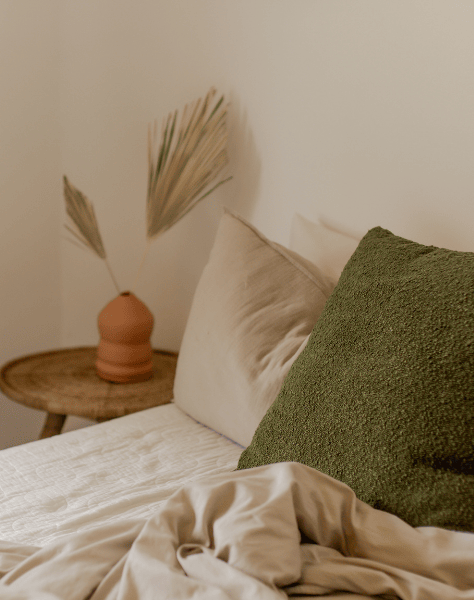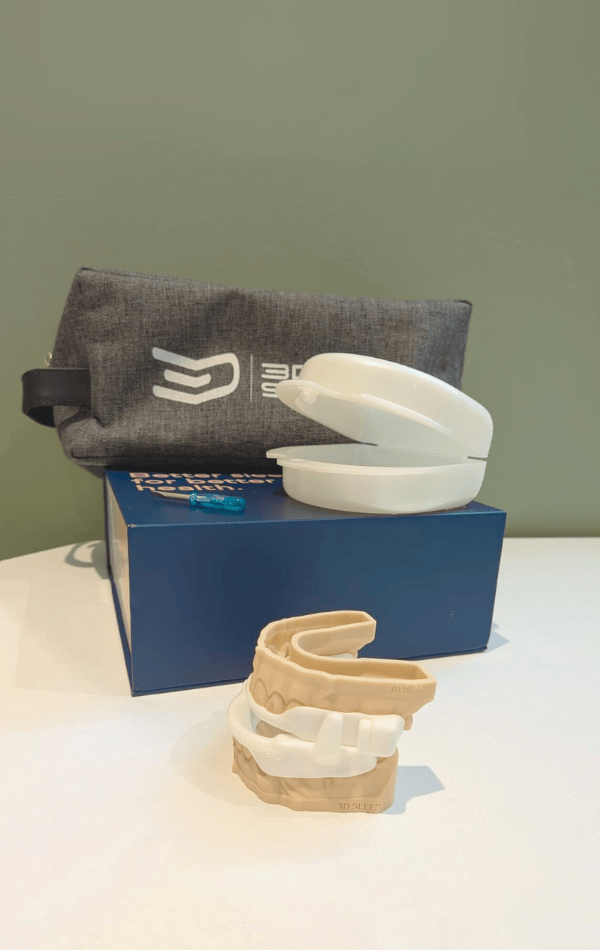DENITIST IN NEUTRAL BAY
Airway & Sleep Health
Better sleep starts with better breathing
We understand how crucial good breathing and restful sleep are for your overall health and wellbeing. Our airway-focused dentistry looks beyond just teeth — we assess how your mouth, jaw, tongue, and airway work together to impact your breathing, sleep quality, and facial development.
Do I have Sleep Apnoea?
If you snore, wake up tired, or struggle with brain fog or daytime fatigue, you may be experiencing a sleep-related breathing disorder such as obstructive sleep apnoea (OSA). Our dentists are trained in airway-focused dentistry and dental sleep medicine, offering safe, effective, and non-invasive solutions tailored to adults. We also collaborate with sleep physicians and other health professionals to ensure you get comprehensive care — often without relying solely on CPAP.

Difference between Snoring and Sleep Apnoea
While occasional snoring may be harmless, ongoing snoring or apnoea disrupts sleep, reduces oxygen, and increases serious health risks.
-
Snoring occurs when airflow is partially blocked during sleep, causing vibration of the soft tissues in the throat.
-
Obstructive Sleep Apnoea (OSA) happens when the airway repeatedly collapses during sleep, stopping airflow and reducing oxygen levels.

Sleep Apnoea Explained: Causes, Symptoms & Why Treatment Matters
Causes of Obstructive Sleep Apnoea
-
Narrow airway or enlarged tonsils
-
Mouth breathing or poor tongue posture
-
Recessed or underdeveloped jaws
-
Excess body weight
-
Chronic nasal congestion or allergies
Identifying the cause helps us recommend the right treatment — whether that’s oral appliance therapy, lifestyle changes, or medical referral.
Signs you may have Sleep Apnoea
Even without snoring, you may have “silent apnoea.” Common signs include:
-
Waking up gasping or choking
-
Morning dry mouth or headaches
-
Persistent fatigue despite 7–9 hours of sleep
-
Difficulty focusing, memory issues, or brain fog
-
Mood swings, low mood, or irritability
Why treating Sleep Apnoea matters
Untreated sleep apnoea can contribute to:
-
Daytime fatigue and reduced concentration
-
Mood disorders, anxiety, or depression
-
High blood pressure and heart disease
-
Greater risk of stroke and type 2 diabetes
-
Relationship strain from snoring
-
Increased risk of accidents from fatigue
Every pause in breathing puts stress on your body. Treatment restores oxygen flow, improves energy, and protects your long-term health.
When to see a dentist for snoring or poor sleep
If you notice the signs above, we’ll assess your airway, posture, and risk factors, and guide you toward the right next steps, including referral for a sleep study if needed.


How dentists can help with Sleep Apnoea
At Oaks Dental, we provide non-invasive, effective alternatives to CPAP for patients with mild to moderate OSA.
Mandibular Advancement Splints (MAS)
A MAS is a small, custom-made device that gently moves the lower jaw forward while you sleep. This prevents airway collapse and allows easier breathing.
Benefits of MAS devices:
- Comfortable and easy to wear
- Removable and easy to clean
- Quiet and travel-friendly (no machines or hoses)
- Effective in reducing snoring and apnoea
- Customised and adjustable to your needs
Ready to breathe better and sleep well?
Don’t ignore the signs. Poor sleep could be more than just tiredness — it may be a symptom of sleep apnoea. We can help you with the right treatment so you reclaim restful nights and energetic days.
